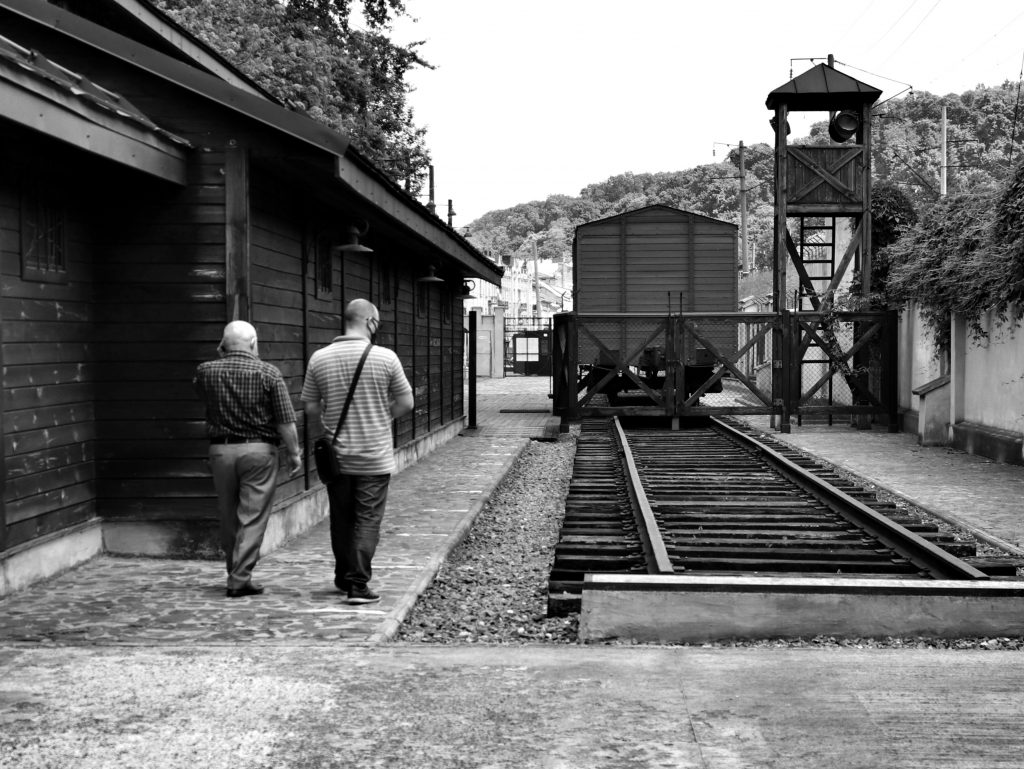Volodymyr Shvets
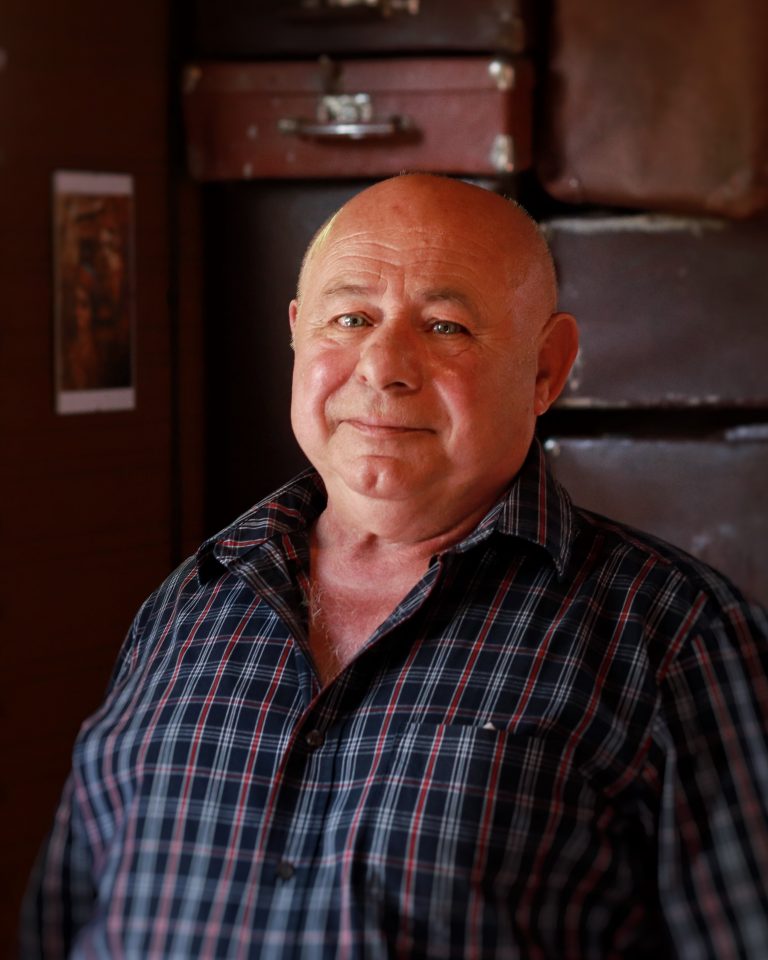
Volodymyr was born on March 3, 1949, in the village of Hostyntseve, nine months before his mother’s imprisonment and exile.
IMPRISONED BEFORE BIRTH
Petronelia Shvets, the respondent’s mother, was born on July 21, 1927, in the village of Liashky Hostyntsevi, Drohobych region (now Hostyntseve village, Lviv region). There were five other children in the family beside her. After studying at an agricultural school, she worked in the district finance department. At the end of 1948, in the sixth month of her pregnancy, she was detained for links with the underground movement.
“She worked in the district financial department. She was telling us how the taxes were collected. How they laughed, about a goat, or wood at that time, there was everything. She also told us how she was providing people with some information. There were things that she didn’t speak about. The only thing is that when I served in the army and came home, and when I was wearing the field uniform with a pistol, she was very afraid of weapons. […] This is connected with the underground movement, it was, maybe because of the specifics of her work, maybe more like, like intelligence, something like this. I never heard her being afraid of anything else. Same was as she was afraid of weapons.”
Petronelia Shvets was in prison in Drohobych. The interrogations consisted of finding out the whereabouts of her husband and the child’s father, Stanislav (Stakh) Malanchuk, call sign “Krupa”.
“I was summoned for questioning at night. They arranged the “5th corner”, they broke her nose. The main question was to admit who was the father of the future child. She was released home, and then the NKVD ambushed her in the garden near the house to arrest my father”, Volodymyr Shvets wrote in his memoirs, which he prepared before recording an interview for our project.
“DO YOU KNOW WHO YOUR FATHER IS? AND WHERE IS HE NOW? SHOW US”
“In the summer of 1948, my mother secretly married my father in the Volia Arlamivska village”.
“Thank God since you left, we will be able to talk more often because I really want to talk to you, my heart’s breaking, but you can’t be freer right now, so let’s talk at least through the letters. I will never, never forget you and I will do everything I can for you. My dear sister, maybe there’s a lot on your mind but look at your right hand (*probably that’s the reference to the wedding ring which in Ukraine people wear on the right hand – translator’s note). It will remember everything – same as mine. The time will come when we will live together in our house.” This is an excerpt from a letter sent to Petronelia Shvets on July 15, 1950. Letters were sent to Inta by a brother and sister, but the words of her husband, Malanchuk Stakh, were written there. To disguise himself, he addressed his wife: “Dear sister.”
Volodymyr Shvets remembers his father little – mostly from family legends, memories of his mother and fellow villagers. In the 1990s, he tried to find his father’s case in the archives, but to no avail.
“His name? The problem is that the documents… He didn’t actually… It was him, his last name was Malanchuk, and his first name was Stakh or Stanislav. Because there is… Well, always, there is a reduction. Whether it was Stakh shortened from Stanislav or was it just Stakh… I don’t know either. It is said he was born in the Khodorskyi district, Baranychi. Whether it is true or not, how can we know, as my mother says? Everything he said, he had to say the way she wouldn’t know for sure, so she wouldn’t be thinking about it. Although there was a time when a woman from that village worked at the Kinescope plant, and she showed the photos, she showed them to her relatives there, because, she said half of the village there had that last name. They said when they went to show the photos to the people in the village, there was a sister or a relative, they cried, and that’s all.”
(photo: Father – Stakh Malanchuk, in the photo – on the right side)
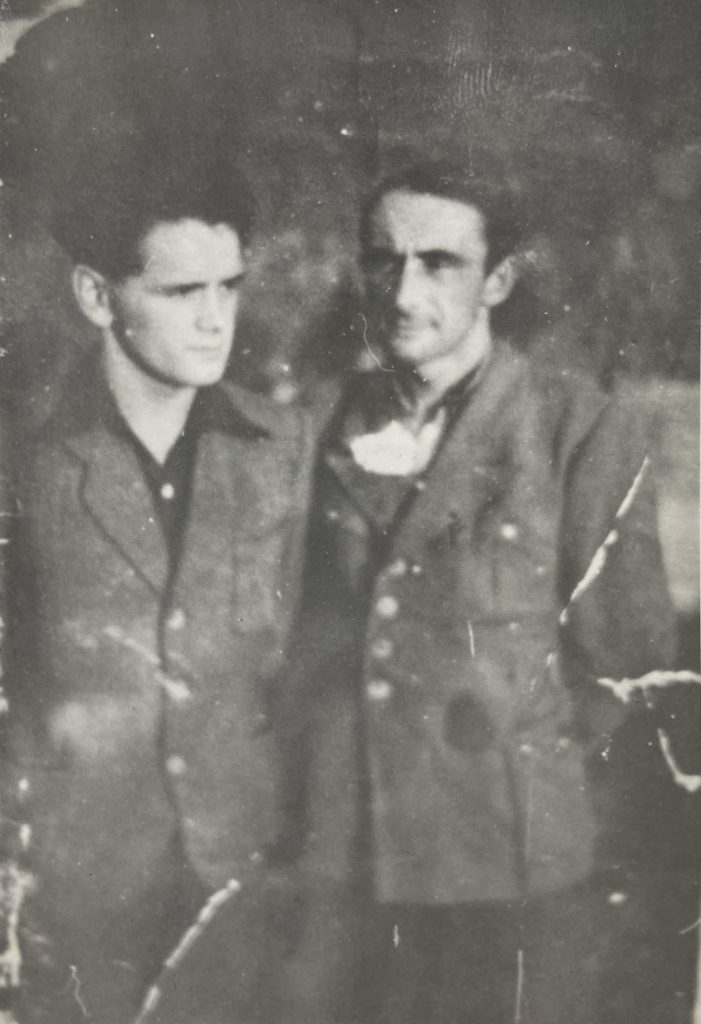
Stakh Malanchuk was arrested in the summer of 1952 during a raid:
“In the summer of 1952 in Hostyntseve village, my dad and two fighters were raided. During the shooting, one fighter was killed, another shot himself, and my father was captured. He was on the trial in the same year, and they sentenced him to 25 years in prison. His further fate is unknown, and there were many rumors. At the end of the summer of 1957 (if I’m not mistaken) there was an article in the Mostyska district newspaper “Socialist Way” about “bourgeois nationalist gangs”, mentioning both my father and his call signs: “Shuvar”, “Krupa”.
There are stories in the family’s memory of how Stakh came to visit his son, how he watched him. He later passed on information about his son to his wife:
“My dearest Petrusia! It breaks my heart that we were separated by the woes, a year has passed since we saw each other, my dear. I remember the holiday of St. Mykhailo that we spent at the aunt’s when we saw each other for the last time. It’s hard to forget you, it seems that I will never forget! The only reminder is the son Vlodzio, who brings joy to my heart. The child is wise, you have no idea how wise he is, he asks for a pencil and writes. He smeared all the walls in the house, he is afraid of me, when I come to him he just sticks to his grandmother. And he beats me [incomprehensibly] and with big efforts, I take him in my arms. He is no longer as brave as he used to be. But thank God he is healthy and growing fast, he remembers his mother” – an excerpt from a letter from the brother Mykhailo Shvets, dated November 29, 1950.
It was only later that the narrator realized that this “tall man” he had seen in the yard was his father. He told his son that if they asked “who is your father?”, it must be said that he was “drowned in swill.”
THE PHOTO SHOWS ALL THE CHILDREN OF IMPRISONED MOTHERS – PETRONELIA SHVETS IN PRISON
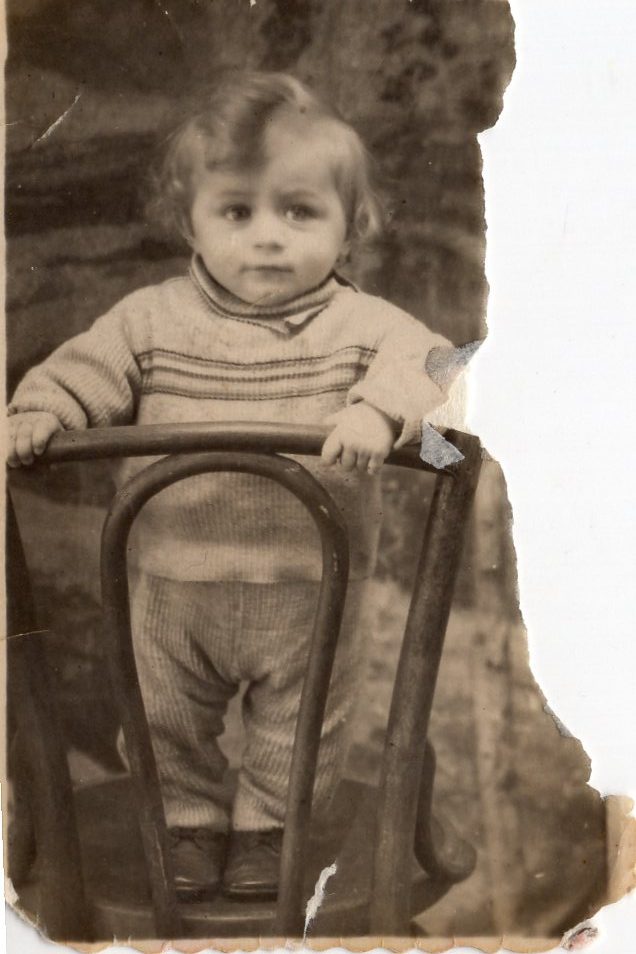
The certificate of release issued to Petronelia Shvets states that she was sentenced on April 8, 1950, under Article 20-54-1a of the Criminal Code of the Ukrainian SSR, to 5 years. She served her sentence in a correctional camp in Inta, Komi Republic, RSFSR.
Upon her return, she told her son about her stay in the camp:
“She told me that… That as soon as they had arrived, the locals told everyone that the “fascists had arrived,” so they treated them that way. Clearly, they lived in barracks, there was not enough space, so when they slept they had to change sides all together at the same time. They did it on a signal – one person gave a command, and everyone turned to the other side. Clearly, in winter sometimes it was colder than -40. Clearly, if it was lower than -40 – they didn’t make people go to work. And if it was higher than -40, then they had to go to work with their mining picks. “Go to work.” That is, they were digging permafrost and made ditches. And roads. And once my mum didn’t get her bread. They said something it had to look like this, or like that. She probably didn’t even know Russian well… Who knew Russian well? She dug a hole, they said they needed side slopes, and she did them. And it looked like she did it [wrong] intentionally. That’s why they didn’t give her any bread.”
Correspondence with relatives was allowed once every six months. In the first letter, relatives sent a photo of their son. Volodymyr Shvets showed the project team this photo and said that it was in a bad condition because the mother had lent it to other prisoners so that they could look at it and remember their children.
(photo: Children’s photo of Volodymyr Shvets given to his mother in Siberia, 1950)
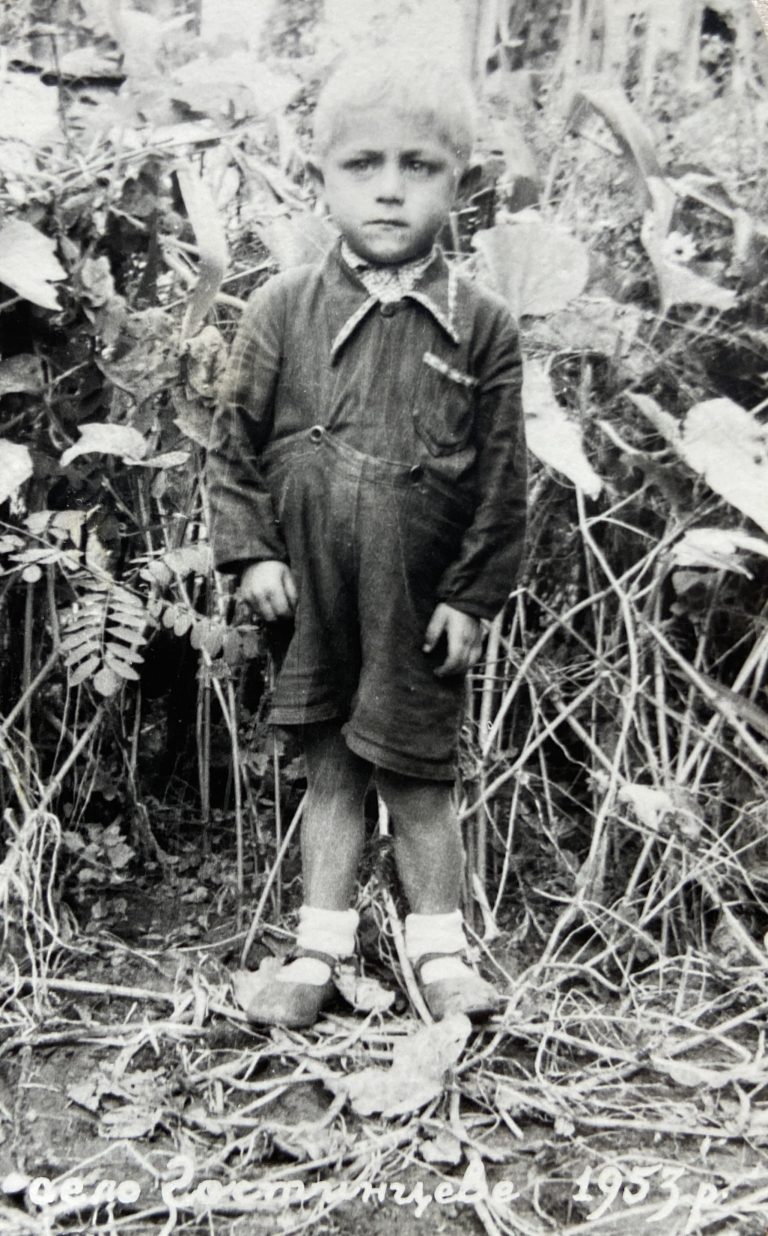
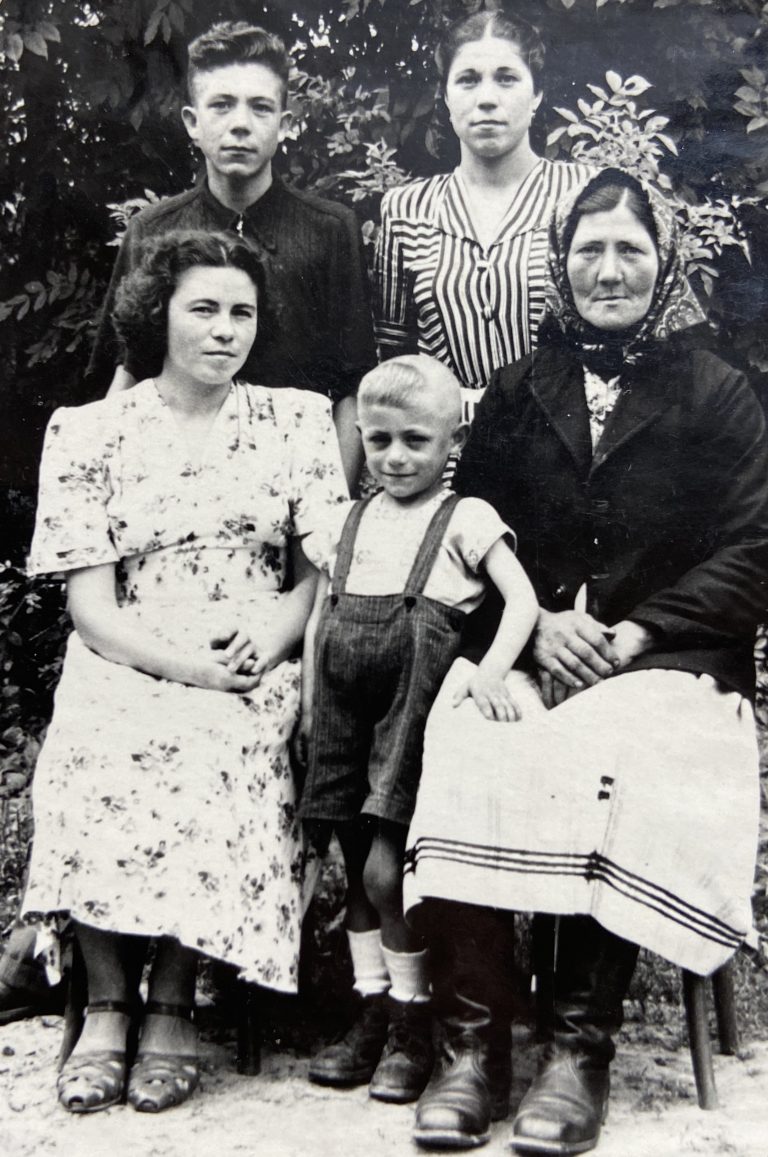
“IT’S ME, AND YOU’RE – MY MOTHER”
“The sun is shining beautifully. Larks are singing. It’s was even more beautiful inside my heart – I was going with my grandma Nastia to the train to go to Lviv and meet my mother (she was forbidden to go further than Lviv). I stood all the way and looked out the window. Finally, we are on the platform, and I run to meet my mother… ” – wrote in his memoirs Volodymyr Shvets.
His mother was released on May 14, 1953, under an amnesty in March 1953. “Detained in places of imprisonment for three years, 5 months, 7 days” – this is stated in the certificate of rehabilitation, which she received on July 21, 1992.
“1953. When she was released, my mother was given 7 rubles and 50 kopecks (that was nothing). If you refused to receive the money, they threatened with arrest”. “In the 1990s, my mother received compensation for the years of imprisonment, and while she was waiting to receive them (inflation) – they were enough to buy only one boot (I gave her money for the second)”.
The narrator recalled that he thought a lot about the first meeting with his mother. After arriving at the Lviv railway station, he ran to his mother but she didn’t immediately recognize him and asked: “Who are you meeting here?”.
Although Petronelia Shvets was acquitted in 1953, she was not allowed to return to the village. Lviv was the nearest place where she had the right to live. There she got a job at a low-voltage lamp factory. At first, she lived with her family, then began to rent a room, in 1963 she received a “basement apartment”. Volodymyr Shvets lived with his grandmother until March 1961, when he entered the College of Radio Electronics.
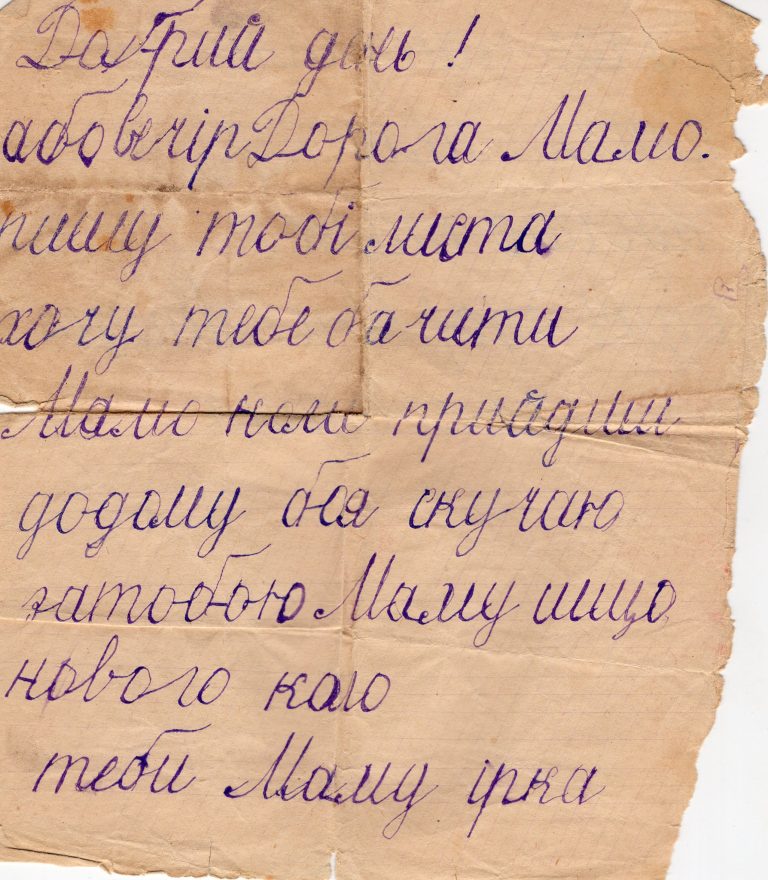
AUTOBIOGRAPHY AND DREAMS ABOUT THE LEGAL DEPARTMENT
It was very important for the “Soviet man” to be able to write the “correct” autobiography, which was your “pass” to “normal life”. Thanks to the “correct” autobiography, it was possible to get a job and study.
“I always wrote [autobiographical information], nothing. I didn’t have a father, I don’t know him and I don’t want to know. And that’s it. No questions. No official information? No. So officially no information, so no questions to ask. No information, none. Single mother. And for what? And I didn’t give information about my mother. Who? A worker. There were no questions either. Well, I did everything I could that they didn’t… Didn’t find out something when necessary and…”
After graduating from college in 1969, the narrator wanted to become a lawyer:
“Well, when you needed a permit, you needed a permit, they found everything. I was told I wanted to become a lawyer a long time ago. A relative told me, with your autobiography, you can go to the polar bears instead of going to university and studying law.
Therefore… When I graduated from a vocational school in 1969, I was drafted to the army”.
